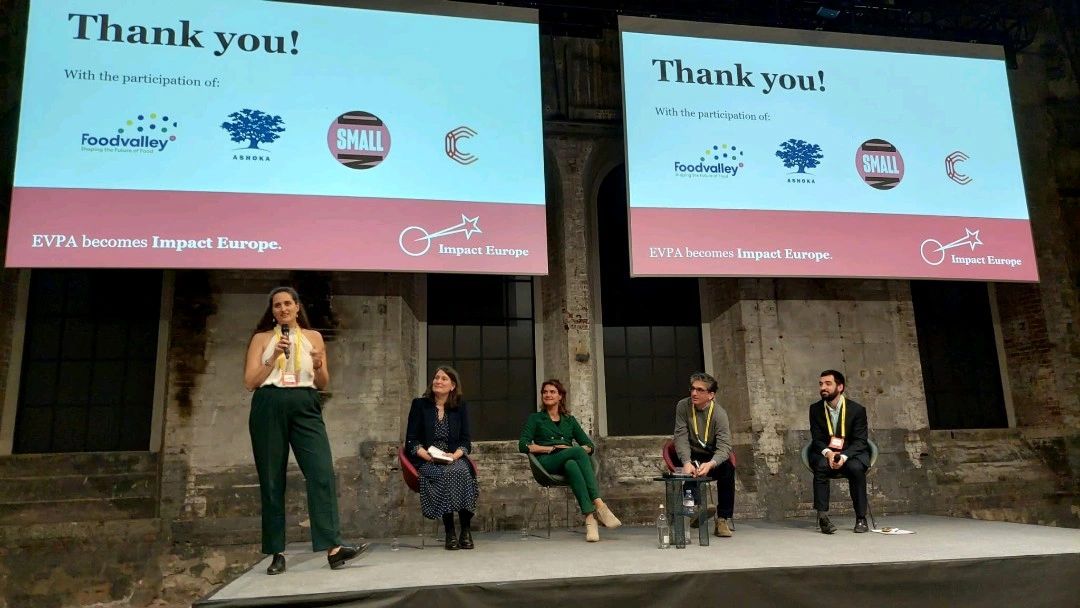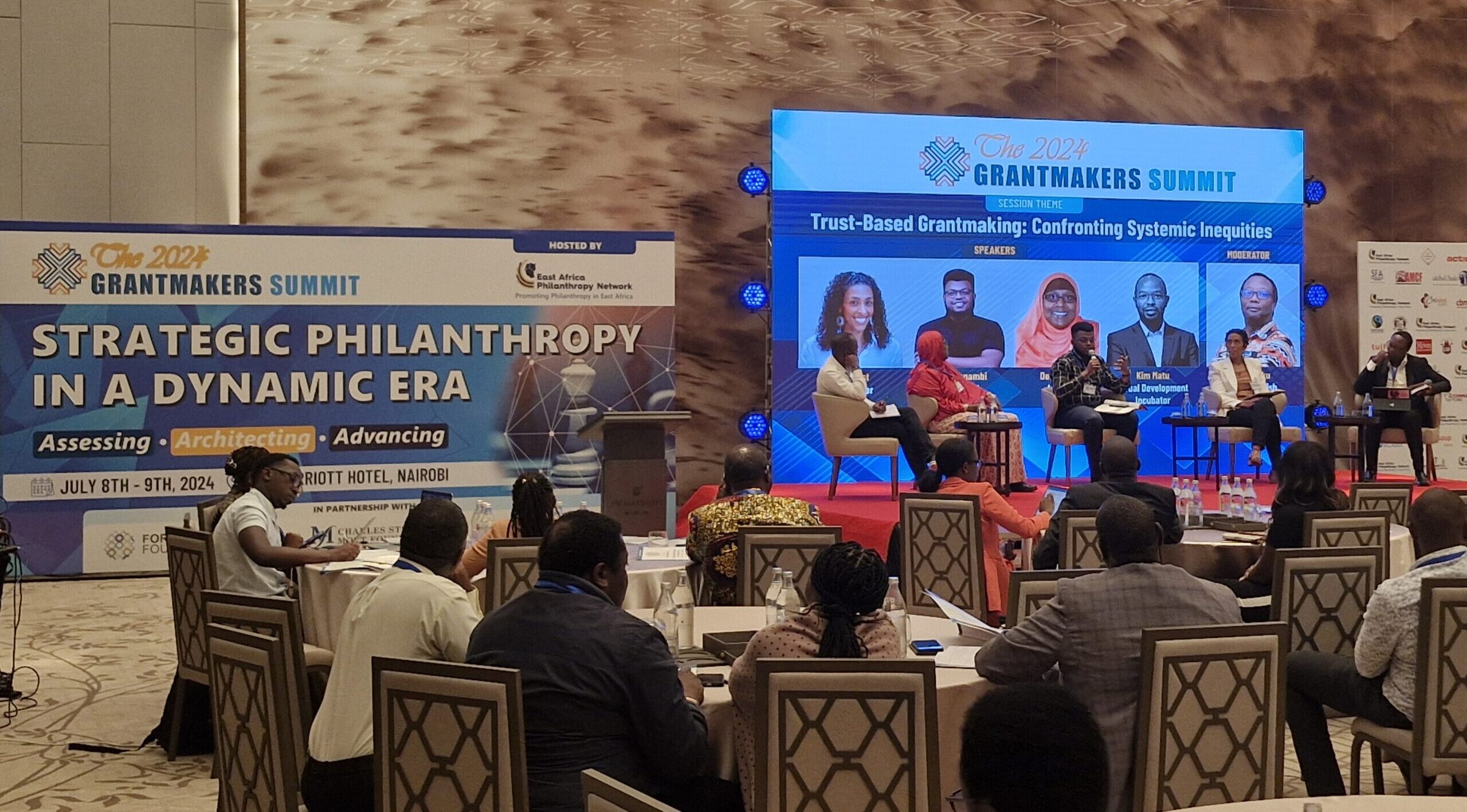
Tracking system change: What Small Foundation is learning
In the quest for lasting impact, many social innovators and funders are exploring how to capture progress towards systems change.
Following the adoption of our systems change strategy in 2021, Small Foundation shared our early thinking on tracking system changes. We talked about our learning questions and the challenges we faced, the frameworks we were using, and our rationale for dedicating resource to this complex and amorphous task.
In November 2023, our Deputy CEO Liz Wilson had the opportunity to speak on our work in this area at the Impact Europe week in Torino. The panel discussion on the relationship between impact management and systems change was hosted and led by Arnau Picón from Impact Europe, with fellow panellists Marjolein Brasz from Foodvalley, and Federico Mento from Ashoka Italy.
Here are some reflections we shared on what we have been learning about tracking systems change.
What does systems change mean for Small Foundation?
We recognise the challenge of monitoring and managing impact while fostering a mindset that embraces complexity and long-term results. Small Foundation has undertaken three pivotal shifts in implementing our systems strategy:
- System Entry Points: Moving from individual investments to identifying and connecting our work very intentionally to changing specific parts of the rural MSME ecosystem in sub-Saharan Africa. These system entry points combine our analysis of the current and potential future system with our assessment of where our resources and experience can support change. We fund with intentionality.
- Welcoming emergence: Not just using predefined milestones in our partnership agreements but also leaving space for emergent impact monitoring and relationship management practices. Rather than being in the business of funding ‘solutions’, we are looking for partners that are pioneering ‘emergent practice’ for learning and innovation to tackle complex problems over the long-term. We fund experimentation.
- Shifting mindsets as well as resources: Emphasising the importance of not just shifting resources in systems, such as increasing access to finance for MSMEs through discrete transactions, but of supporting initiatives that shift mindsets and actions over the longer term. We fund long-term change.
What are impact measurement and management practices that can help or hinder the integration of systems thinking?
In aligning impact measurement structures with systems change goals, Small Foundation has taken three pragmatic steps:
- Intentional data collection: Being intentional about collecting meaningful data that aligns with targeted focus areas and clear theories of change. Striving to only collect data that supports the goals of our partners and that Small Foundation as a funder can make use of.
- Investing in capability: Committing resources to building internal capabilities, including data systems and human resources, enabling us to effectively consolidate and interpret partner data and learning in the context of long-term systems change
- Challenging assumptions: Remaining open to learning and exchanging ideas on ‘tracking’ or ‘detecting’ systems change beyond traditional measurement and metrics, including aspects like social capital, trust, and relationships. We have been building on lessons from the development and usage of our network IMM toolkit.
Tracking long-term systems change is not easy and we are very interested to learn from and with others; we welcome opportunities for thought partnerships on this journey. Thanks to Impact Europe for shining a light on this important area of emergent practice and giving us an opportunity to engage with this community.
Impact Europe is a network at the intersection of finance and purpose, driven by knowledge and focused on impact. You can access more information about Impact Week on their website.

